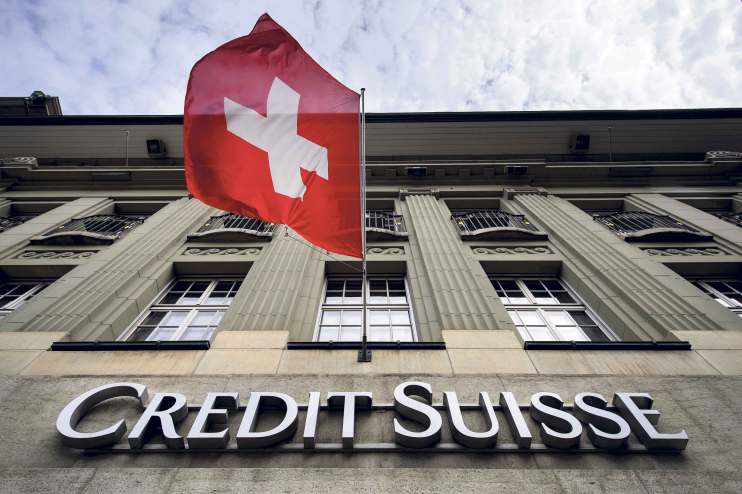Banks recover morning losses as markets digest Credit Suisse-UBS merger

Shares in UBS were trading over 5 per cent down around midday on Monday, having traded nearly 10 per cent lower earlier in the day, after it completed its emergency acquisition of Credit Suisse over the weekend.
Although many European banks were trading lower in the morning, most had recovered some of their losses shortly after midday.
Deutsche Bank was down 2.6 per cent, SocGen was down 3.3 per cent, BNP Paribas 1.6 per cent. In the UK Barclays was down 2.6 per cent and HSBC 1.6 per cent. The Stoxx 600 banking index was down 1.0 per cent.
Markets had been surprised by the decision to write-down Credit Suisse’s alternative tier one (AT1) bonds to zero as part of the deal. They had been worth $16bn.
As AJ Bell’s Russ Mould said the decision “appears to have spooked investors and has led to a sell-off in other bank debt and that’s weighed on share prices.”
An AT1 bond is a bond with insurance, which is then converted into equity if a bank falls below a certain, pre-decided strength or capital limit.
AT1 bondholders are usually higher in the ‘food chain’ than shareholders if a bank goes bust. In theory, they should have been compensated or taken equity in Credit Suisse.
However, the decision to completely write-down the AT1 bonds while compensating shareholders has reversed the traditional order of payments.
“Blatantly upending the hierarchy of debt will have ramifications and I think this is why we are seeing such a negative reaction in bank shares this morning,” Wilson said.
Markets also remained wary after a coordinated response from central banks to improve access to liquidity in the financial system.
As the central banks themselves said, the credit lines will serve as “an important liquidity backstop to ease strains in global funding markets, thereby helping to mitigate the effects of such strains on the supply of credit to households and businesses.”
While the intervention is designed to calm markets, it also suggests there are deeper problems in the financial sector.
Interactive investor’s Richard Hunter said: “The scale of the response from central banks at the weekend acknowledges gaps in the system, which will leave many investors unwilling to revisit financial stocks until such time as the full extent of the problem is known.”